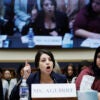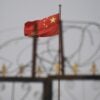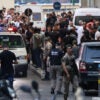We waved goodbye as Suri* and Maya,* two of the youngest girls at the Burmese trafficking restoration house, were heading to Rangoon to testify against their traffickers. The other survivors and employees at the house expressed high hopes but low expectations that maybe this time it will be different, maybe this time their traffickers will be brought to justice, maybe this time the judge will not be paid off, maybe this time the rule of law will reign rather than corruption and impunity.
This situation is not unique. Impunity for traffickers is the norm in Burma, with prosecutions of traffickers rare and rescue of victims few and far between. The Burmese government failed to follow through on its stated intentions to fight human trafficking.
Respect for Human Life Totally Absent
In 2016, Burma was finally downgraded to Tier 3, the worst designation a country can receive, in the U.S. Department of State’s Trafficking in Persons (TIP) report.
Burma’s downgrade to Tier 3 is merited. The TIP report documented:
- Lack of protection for child soldiers and victims of human trafficking,
- Failed progress in holding civilian and military officials criminally responsible for trafficking offenses, and
- Continued persecution of the Rohingya Muslims.
Burma’s poor anti-trafficking efforts and failure to protect religious minorities like the Christian Kachin and Muslim Rohingya contributed to the 2015 Southeast Asian migrant crisis, in which an estimated 31,000 Rohingya and Bangladeshi’s fled Burma.
Burma has been on the Tier 2 Watch List since 2011 and received two waivers for automatic downgrades to Tier 3 due to a written plan that, if implemented, would constitute significant efforts to comply with minimum standards for the elimination of trafficking in persons.
While the Burmese government took small steps toward reform, including the enactment of a plan backed by the U.N. to combat the recruitment of child soldiers, it ultimately failed to protect children from recruitment. The government also failed to protect victims of sex and labor trafficking from their traffickers after their rescue.
Critical Need for Rule of Law
Without rule of law in Burma, these high levels of human trafficking will continue unabated. The TIP report found that military and civilian officials, and influential religious officials are relatively exempt from the rule of law. Forced labor and the recruitment of child soldiers are explicitly described as criminal offenses in Burmese law, yet authorities have never used these laws to prosecute public officials.
Southeast Asian countries, the Philippines, and Cambodia, improved anti-trafficking efforts by undertaking rule of law efforts to combat trafficking in persons. One successful anti-trafficking non-governmental organization, International Justice Mission, documented a 79 percent decrease in the availability of child sex trafficking victims in Cebu, Philippines, and the availability of minors for sex trafficking in Cambodia dropped from between 15 and 30 percent in the early 2000s, to just 8.16 percent between 2014 and 2015. The Philippines was upgraded for the first time to Tier 1 and Cambodia transitioned from Tier 2 Watch List to Tier 2 in the 2016 TIP report.
Burma Can and Should Strengthen Rule of Law
Only one of Suri and Maya’s two traffickers was convicted, receiving a relatively lenient penalty considering the severity of the trafficking offenses committed. Their other trafficker walked free. This great injustice is but further confirmation for current and future victims of trafficking that ultimate justice in Burma is a long way off.
Burma’s downgrade to Tier 3 should be a wake-up call to Burma’s new leadership that human rights offenses will not go unnoticed. The U.S. must continue to lead global anti-trafficking efforts and call upon countries like Burma to integrate rule of law solutions as a core component to end human trafficking.
* Names changed to protect the identity of victims of human trafficking.
Note: One of the authors, Hayley Betz, spent time working at a Burmese restoration house for victims of human trafficking, The stories are true and from her experience serving in Burma.

























